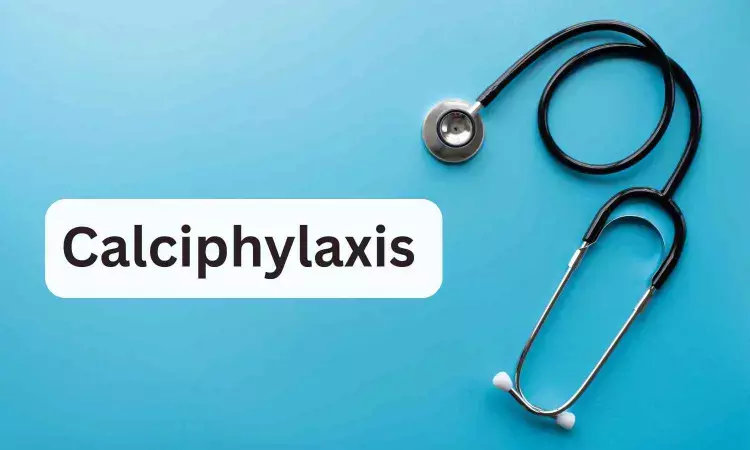- Home
- Medical news & Guidelines
- Anesthesiology
- Cardiology and CTVS
- Critical Care
- Dentistry
- Dermatology
- Diabetes and Endocrinology
- ENT
- Gastroenterology
- Medicine
- Nephrology
- Neurology
- Obstretics-Gynaecology
- Oncology
- Ophthalmology
- Orthopaedics
- Pediatrics-Neonatology
- Psychiatry
- Pulmonology
- Radiology
- Surgery
- Urology
- Laboratory Medicine
- Diet
- Nursing
- Paramedical
- Physiotherapy
- Health news
- Fact Check
- Bone Health Fact Check
- Brain Health Fact Check
- Cancer Related Fact Check
- Child Care Fact Check
- Dental and oral health fact check
- Diabetes and metabolic health fact check
- Diet and Nutrition Fact Check
- Eye and ENT Care Fact Check
- Fitness fact check
- Gut health fact check
- Heart health fact check
- Kidney health fact check
- Medical education fact check
- Men's health fact check
- Respiratory fact check
- Skin and hair care fact check
- Vaccine and Immunization fact check
- Women's health fact check
- AYUSH
- State News
- Andaman and Nicobar Islands
- Andhra Pradesh
- Arunachal Pradesh
- Assam
- Bihar
- Chandigarh
- Chattisgarh
- Dadra and Nagar Haveli
- Daman and Diu
- Delhi
- Goa
- Gujarat
- Haryana
- Himachal Pradesh
- Jammu & Kashmir
- Jharkhand
- Karnataka
- Kerala
- Ladakh
- Lakshadweep
- Madhya Pradesh
- Maharashtra
- Manipur
- Meghalaya
- Mizoram
- Nagaland
- Odisha
- Puducherry
- Punjab
- Rajasthan
- Sikkim
- Tamil Nadu
- Telangana
- Tripura
- Uttar Pradesh
- Uttrakhand
- West Bengal
- Medical Education
- Industry
Researchers identify pathway responsible for calciphylaxis, a rare and serious condition

The global burden of chronic kidney disease (CKD) is rising, with more than 800 million people affected worldwide. Vascular diseases in patients with CKD are unique and grouped as uremic vascular diseases. One of them, calciphylaxis, typically affects patients with end-stage, advanced kidney disease. It is a condition characterized by severe, painful and non-healing skin ulcers with no known cure.
For the first time, researchers from Boston University Chobanian & Avedisian School of Medicine in collaboration with the Massachusetts General Hospital, have discovered a novel biological pathway, called the IL6 pathway, central to the skin lesion initiation and progression. Blocking this pathway they believe, will likely prevent progression of the skin ulcers and resolve the pain seen in patients with calciphylaxis.
“This study reveals the presence of a pathological and harmful cycle between the fat under the skin, sweat glands and small blood vessels that keep feeding onto itself. If this cycle isn’t stopped and remains unchecked, it will lead to the skin ulcers that won’t heal. Using the specific pathway we identified, we could break this cycle and prevent the skin ulcers from getting worse,” explained corresponding author Vipul Chitalia, MD, PhD, professor of medicine.
In the study, human calciphylaxis skin and blood samples were examined for proteins and genes to analyze alterations in disease-causing mechanisms. An FDA-approved drug was then applied to see if the disease-causing pathway could be suppressed.
According to the researchers, drugs that can block this pathway are already available, safe to use and approved for other indications. “Those drugs are likely to prevent progression of the skin ulcers and resolve the pain that we see in patients with calciphylaxis. Human trials are now needed to show the benefit of those drugs.” explained co-author Jean Francis, MD, associate professor of medicine.
These findings appear online in the journal Science Translational Medicine.
Reference:
Marc Arthur Napoleon et al. ,Activation and targetability of TYMP–IL-6–TF signaling in the skin microenvironment in uremic calciphylaxis.Sci. Transl. Med.17,eadn5772(2025).DOI:10.1126/scitranslmed.adn5772
Dr Kamal Kant Kohli-MBBS, DTCD- a chest specialist with more than 30 years of practice and a flair for writing clinical articles, Dr Kamal Kant Kohli joined Medical Dialogues as a Chief Editor of Medical News. Besides writing articles, as an editor, he proofreads and verifies all the medical content published on Medical Dialogues including those coming from journals, studies,medical conferences,guidelines etc. Email: drkohli@medicaldialogues.in. Contact no. 011-43720751


